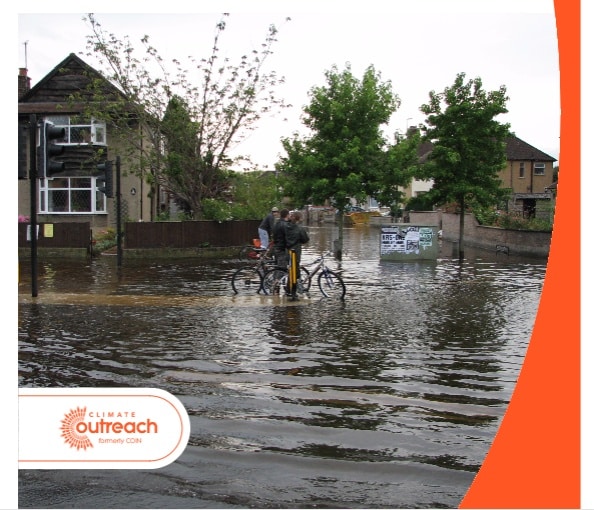Fierce winter weather has caused havoc across the UK, America, and many other nations. Although storms are an integral part of the winter months, recent flooding has left it’s mark on the national consciousness, leading the news agenda for weeks on end and causing disruption to thousands of people’s lives
WHY YOU SHOULD TAKE A LOOK:
This report is focused on how members of the public engage with flooding in the context of climate change. Clime Outreach convened a one-day workshop in Oxford to research how individuals and communities can be more effectively educated about flood risk. The workshop focused on nine principles of best practices for public engagement. The principles focus on engaging and supporting communities directly affected by flooding and those who have not been affected by flooding.
KEY TAKEAWAYS:
The nine principles of best-practice public engagement derived from the Oxford workshop are:
1. Climate scientists can quantify the role of human influence in individual flooding events; specifically whether they are made more or less likely in a changing climate.
2. There is growing evidence that flooding and climate change are linked in the public mind.
3. Conversations about climate change should ideally begin before (not during) flood events when communitie are under pressure.
4. Communication and engagement around flood events must be carried out sensitively, or they will backfire.
5. Statistical information and accurate scientific data are crucial, but trusted ‘peer’ messengers and personal stories are vital for achieving public engagement
6. Flooding and climate impacts cannot be separated from the wider social context that determines communities’ ability to cope with stress and trauma.
7. Communities that have been affected multiple times offer powerful opportunities for learning (but also have a right to forget).
8. It is important to strike the right balance between the ‘local’ and ‘global’ aspect of flooding (as a climate impact).
9. Communications should empower people to respond and adapt to future flood risks – focusing on preparedness and support rather than ‘getting back to normal’.


